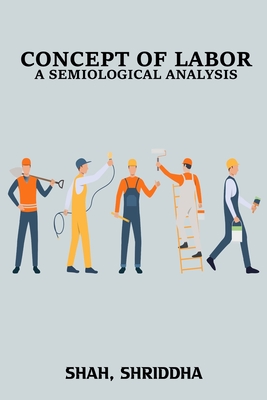Concept of Labor A Semiological Analysis

Concept of Labor A Semiological Analysis
INTRODUCTION The biblical theory of creation that underpins the intellectual history of the western civilisation posits labour as the fundamental condition of humans in this world. The labour of man and the woman in labour are to sustain our common inhabited world (Gn.3:16-19). From being this fundamental condition of life in the world, to man's sacred duty (Tolstoy 1887), to being a sign of slavery (Arendt 1998) and now perhaps becoming obsolete 1 with the rise of automation, there has been a drastic change in the role and conception of labour. This trajectory is particularly noteworthy in its details with the rise of the modern western civilisation. It is my contention that with the foundational changes in the epistemological and the metaphysical presuppositions of Modern Western civilisation that the roots of the change in the concept of labour can also be traced. The concept of labour has been central for philosophers of the Modern Age to articulate crucial concepts in social and political theory. From John Locke to Adam Smith and Karl Marx, to more recently in the works of Hannah Arendt and Ivan Illich, the concept of labour has played a significant role. However, this concern has not been with the epistemological and metaphysical foundations of the concept. The concept of labour has been used to clarify areas of concern within the social and political domain but the concept has not been discussed in terms of its epistemic and metaphysical foundations. Locke (1960) articulates labour, as the property of man and when man mixes his labour with the world that is the objective distinction between the private property of man and nature. Adam Smith (1991) in continuation with Locke's articulation considers labour as the source of all value and property, especially with respect to the division of labour. Karl Marx (2009) on the other hand posits labour as the essence of man and therefore what the liberal 1 This article discusses the possibility of labour becoming obsolete in the next few decades, http: //wap.business-standard.com/article/news-ians/human-labour-may-be-obsolete-by2045-116021400268_1.html (Accessed on 15/05/2016)
PRP: 480.44 Lei
Acesta este Pretul Recomandat de Producator. Pretul de vanzare al produsului este afisat mai jos.
432.40Lei
432.40Lei
480.44 LeiIndisponibil
Descrierea produsului
INTRODUCTION The biblical theory of creation that underpins the intellectual history of the western civilisation posits labour as the fundamental condition of humans in this world. The labour of man and the woman in labour are to sustain our common inhabited world (Gn.3:16-19). From being this fundamental condition of life in the world, to man's sacred duty (Tolstoy 1887), to being a sign of slavery (Arendt 1998) and now perhaps becoming obsolete 1 with the rise of automation, there has been a drastic change in the role and conception of labour. This trajectory is particularly noteworthy in its details with the rise of the modern western civilisation. It is my contention that with the foundational changes in the epistemological and the metaphysical presuppositions of Modern Western civilisation that the roots of the change in the concept of labour can also be traced. The concept of labour has been central for philosophers of the Modern Age to articulate crucial concepts in social and political theory. From John Locke to Adam Smith and Karl Marx, to more recently in the works of Hannah Arendt and Ivan Illich, the concept of labour has played a significant role. However, this concern has not been with the epistemological and metaphysical foundations of the concept. The concept of labour has been used to clarify areas of concern within the social and political domain but the concept has not been discussed in terms of its epistemic and metaphysical foundations. Locke (1960) articulates labour, as the property of man and when man mixes his labour with the world that is the objective distinction between the private property of man and nature. Adam Smith (1991) in continuation with Locke's articulation considers labour as the source of all value and property, especially with respect to the division of labour. Karl Marx (2009) on the other hand posits labour as the essence of man and therefore what the liberal 1 This article discusses the possibility of labour becoming obsolete in the next few decades, http: //wap.business-standard.com/article/news-ians/human-labour-may-be-obsolete-by2045-116021400268_1.html (Accessed on 15/05/2016)
Detaliile produsului








